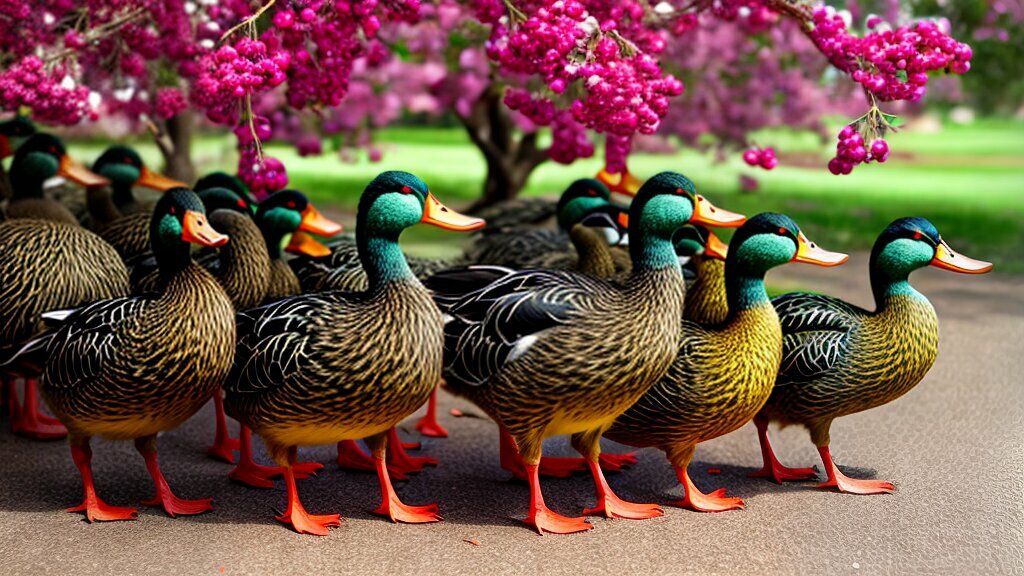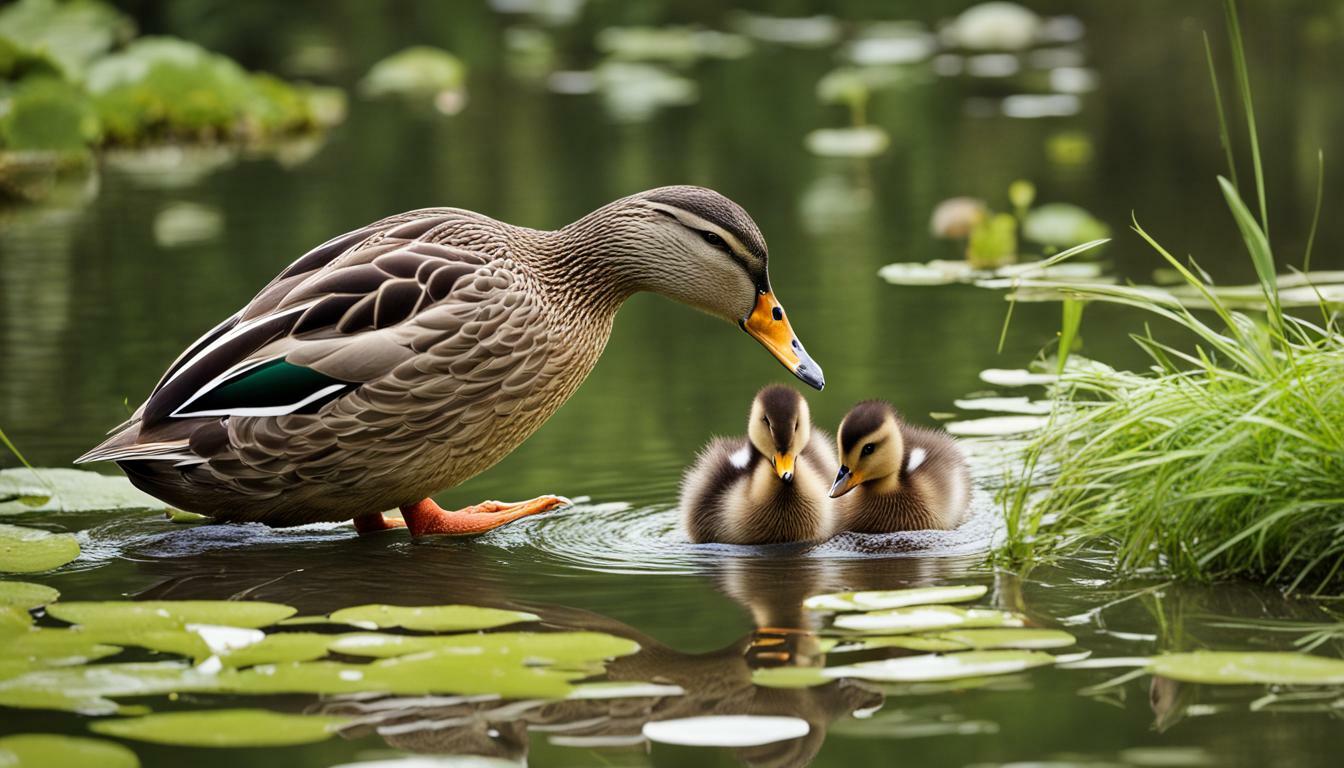Can Ducks Eat Hamster Food? Get Your Answer Here!

Table of content:
- How Nutritious is Hamster Food for Ducks?
- The Risks of Feeding Hamster Food to Ducks?
- Do Hamster Food Pellets Expand in a Duck’s Stomach?
- Is Hamster Food Safe for Baby Ducklings to Eat?
- Can I Feed My Ducks Hamster Food If They’re Out of Duck Feed?
- Will Hamster Food Hurt Ducks If They Eat It?
- Do Ducks Need Grit to Digest Hamster Food Properly?
- What Protein and Fat Content Do Ducks Need vs Hamsters?
- How Do the Vitamin Levels in Hamster Food Compare to Duck Requirements?
- Final Thoughts
If you’ve ever wondered if ducks can eat hamster food, you’re not alone. Many pet owners have both ducks and hamsters and want to know if they can share food sources. While hamster food may look similar to duck feed, there are some important differences to consider before feeding it to your feathered friends.
How Nutritious is Hamster Food for Ducks?
To understand if hamster food is nutritious for ducks, we first need to look at the key dietary requirements for each animal and how they differ.
Hamsters are small rodents that need diets high in carbohydrates and fiber. Hamster food usually consists of mixes of grains, pellets, seeds, dried vegetables, and fruits. It has 15-20% protein content on average.
Ducks, on the other hand, have higher protein requirements around 16-18% for adult ducks and 20-24% for ducklings. Instead of grains, ducks need food sources high in plant and animal matter like green vegetation, insects, fish, and invertebrates.
While hamster food often has corn, wheat, or soybean as the first or second ingredient, duck food should have an animal-based protein like fish meal, blood meal, or insect meal as the dominant ingredient. The higher fiber content in hamster food is not ideal nutrition for ducks either.
The vitamin and mineral content of hamster food does not align well with duck requirements. Hamsters need more calcium and phosphorus than ducks. Ducklings also need niacin, vitamin B12, and pantothenic acid, which hamster food lacks. Overall, the nutritional profiles simply don’t match up.
So while hamster food isn’t completely devoid of any nutrition for ducks, it does not provide the right balance of protein, calories, vitamins, and minerals ducks need in their diet. It lacks the high quality animal proteins that should make up the bulk of what ducks eat.
The Risks of Feeding Hamster Food to Ducks?
Since hamster food is relatively low in nutrition and protein for ducks, feeding too much of it can cause some health risks and issues.
One potential problem is impaction of the digestive tract. Ducks may have difficulty passing some of the fibrous grain sources and dense pellets found in hamster food. Indigestible pieces can get blocked and cause obstructions.
The lower protein content also means ducks may not get adequate nutrition to thrive. Muscle wasting, organ damage, reduced growth in ducklings, and immune system impairment can occur if protein intake is insufficient.
Bloating or volvulus is another concern, as the ingredients may expand in the duck’s digestive system before passing through completely. Gas, pain, and buoyancy issues can result from this swelling effect.
Moldy or rancid hamster food also poses a greater risk to ducks than hamsters. Ducks appear more sensitive to mycotoxins and contamination. Neurological issues like tremors or seizures could occur from molded grains or pellets.
While these risks may not arise from feeding hamster food in small amounts occasionally, regular consumption could compromise a duck’s health. It’s best to stick with proper duck feeds as their staple diet and avoid making hamster food a primary component.
Do Hamster Food Pellets Expand in a Duck’s Stomach?
Many hamster foods contain compressed pellets with grains, seeds, and other compacted ingredients. When these dense pellets get wet in the duck digestive tract, they can expand and get rubbery or mushy in texture.
This expansion effect is less pronounced in hamsters, as their small stomachs and frequent snacking don’t allow too much exposure to moisture before food passes through. Ducks tend to drink and digest larger volumes of water between meals.
The pellets absorb liquid and break down slowly once ingested by ducks. As they expand, this places more pressure on the stomach and crop region. The bird may feel bloated or full, which could impede their ability to eat normal amounts of duck feed.
So while the pellets don’t exactly keep expanding indefinitely, the increased size from their original compressed form can lead to discomfort. This is another reason minimal hamster food intake is best for ducks, especially if pellet-based.
Is Hamster Food Safe for Baby Ducklings to Eat?
Baby ducklings have different nutritional requirements than their adult counterparts, so hamster food may be a bit safer in small amounts for ducklings than full grown ducks. However, it still does not provide optimal nutrition for proper growth and development in ducklings.
The higher protein levels (20-24%) required by ducklings are difficult to achieve with standard hamster food. Ducklings also need more niacin, calcium, and phosphorus than what most hamster food contains. The soft, high protein starter crumbles specifically made for ducklings is a much better choice.
That being said, in an emergency, a handful of hamster food can temporality provide calories and nutrition if duckling starter feed is unavailable. Since the duckling’s nutritional needs are elevated in their first few weeks of life, hamster food should only be a very short term solution.
Within the first couple days of hatching, hamster food is not recommended, as ducklings need very specific vitamins and proteins immediately after hatching. But for a few days old ducklings in a pinch, small amounts of hamster food to supplement duck starter feed can get them by temporarily. Never make it the full diet for growing ducklings though.
Can I Feed My Ducks Hamster Food If They’re Out of Duck Feed?
If you’ve run out of the proper duck feed unexpectedly and need an emergency alternative, small amounts of hamster food can tide your ducks over in the short term. It should never become their full daily diet, but can work as a supplementary food source briefly.
Ideally, you’ll only need to do this for a day or two before getting more suitable duck feed. Only offer hamster food in limited quantities during this emergency gap. Provide plenty of fresh water as well, as the higher fiber content in hamster food may cause extra thirst.
Watch for signs of digestive upset or changes in behavior that could signal the hamster food is causing problems. Adults ducks tend to tolerate it better than ducklings in these situations. Don’t panic if they consume some, just get proper feed as soon as you can.
Consider keeping a small bag of hamster food on hand for these unexpected emergencies only. Just don’t routinely rely on it as your ducks’ staple food. Look at it as a backup reserve, not a primary diet. With some caution, it can fill the gap when needed in a pinch.
Will Hamster Food Hurt Ducks If They Eat It?
Eating some hamster food here and there will likely not cause immediate health problems for ducks. They may even pick at it out of curiosity if housed near hamsters and gain access to it. However, regular consumption of hamster food instead of proper duck feed can start to cause complications.
The main risks are malnutrition and digestive issues over time. Lacking key proteins, vitamins and minerals ducks need could lead to deficiencies impacting growth, immunity, muscles, and organs if hamster food becomes a major component long term.
Indigestion and blockages are also more likely with frequent hamster food intake. The dense, fibrous pellets don’t break down as easily in a duck’s digestive system and can obstruct passageways. Attempting to pass large wads of hamster food can also contribute to cramping and discomfort.
Ducks seem to have a higher sensitivity than hamsters to mycotoxins from moldy grain as well. Neurological problems from contaminated hamster food are not unheard of in ducks. So while not acutely toxic, the long term health consequences make hamster food ill-advised as a primary duck diet.
Do Ducks Need Grit to Digest Hamster Food Properly?
Unlike hamsters, ducks normally eat some grit to help grind up and digest fibrous foods. In the wild they consume small rocks, gravel, sand, and other grit as they forage for plants, fish, insects and more. This grit helps them break down and obtain nutrients from primitive wild foods.
When it comes to commercial duck or hamster feeds, additional grit is not necessarily required. But it may help ducks digest and pass some of the husks, fibers, and compressed pellets in hamster food more easily. Adding a supplement of grit, oyster shell, or other insoluble crushed granite provides extra grinding power.
Free range ducks will naturally pick up small pebbles and rocks outside to ingest. You can replicate this for indoor ducks by offering a small bowl of cleaned gravel or purchased grit powder. Just give a tablespoon or so daily if feeding any substantial amounts of hamster food to support digestion. Avoid using sand, which can cause crop impaction.
What Protein and Fat Content Do Ducks Need vs Hamsters?
The ideal protein and fat contents ducks and hamsters need vary quite a bit based on their species differences and life stages. This is one reason hamster food doesn’t make the best match for ducks.
Hamsters require diets made up of approximately 15-20% protein and 3-7% fat overall. They are omnivores, but need to eat frequently for such small animals. Hamster food is therefore higher in carbohydrates and fiber.
Ducks need about 2-3 times as much protein in their food. Adults should get 16-18% minimum, where ducklings need 20-24% protein or more. Higher fat levels around 5-10% are also beneficial, particularly for young, growing ducks. More protein and calories support development.
Hamster food is too low in animal proteins and too high in grains, fruits and vegetables to properly nourish ducks long term. It can lead to deficiencies and malnutrition if fed as a sole diet. The formulas cater to the totally different nutritional profiles needed for hamsters vs ducks.
How Do the Vitamin Levels in Hamster Food Compare to Duck Requirements?
In addition to differing protein and fat needs, ducks and hamsters require different levels of key vitamins in their diets. Hamster food tends to be lower in certain vitamins essential for duck health.
For example, ducklings need extra niacin, vitamin B12, calcium, and vitamin D3 for bone growth and immunity. Hamster food is not formulated with those elevated duckling vitamin needs in mind. Ducklings fed hamster food exclusively can develop deficiencies.
Adult ducks also benefit from higher levels of vitamins A, K, D3, B12, thiamine, and riboflavin than what is added to hamster food. The formulations focus on the requirements appropriate for small rodents, which vary quite a bit from waterfowl.
Overall, hamster food contains lower amounts of several vitamins ducks depend on for good health. Relying solely on hamster food instead of proper duck feed puts your ducks at risk for problems like malnutrition and poor feathering over time. It doesn’t deliver the right vitamin support.
Final Thoughts
When it comes to feeding hamster food to ducks, moderation and caution are key. While hamsters can thrive on food with lots of grains, fruits, vegetables and fiber, ducks have higher protein requirements and different nutritional needs. Relying on hamster food long term poses health risks for ducks and ducklings.
In an emergency, small amounts of hamster food can temporarily provide ducks with calories and nutrition for a couple days until proper duck feed is available again. But it should never become a regular part of their diet. To avoid malnutrition and other problems, choose quality duck feeds designed specifically for their dietary needs.
Focus on finding formulas with quality proteins like fish meal, algae, or insect meal as the first ingredients. Check vitamin and mineral levels to ensure an adequate nutrition balance suited for ducks. With species-appropriate foods, your ducks will stay happy and healthy on their normal diet.
Welcome. I’m Adreena Shanum, the proud owner of this website, and I am incredibly passionate about animals, especially poultry. I founded adreenapets.com as a labor of love, stemming from my desire to share my knowledge and experiences with poultry enthusiasts worldwide.




